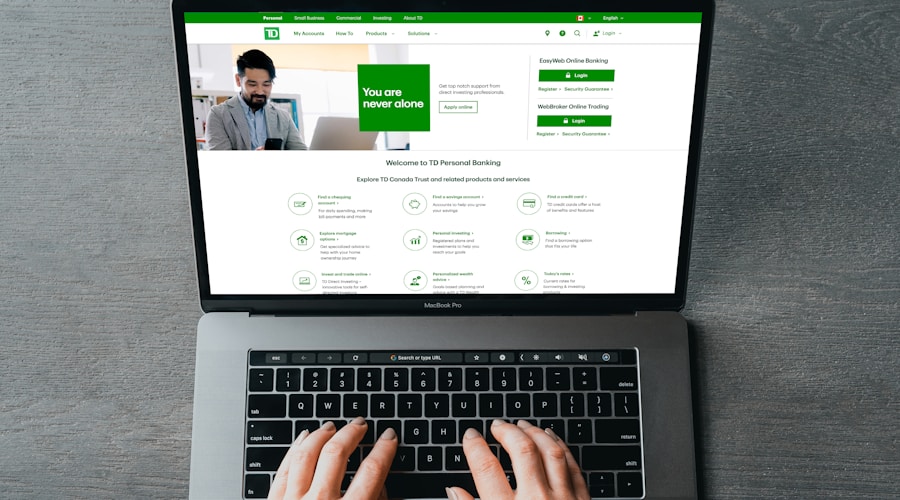Welcome to the world of managing money as a college student! This is an exciting time in your life, but it can also be a challenging one, especially when it comes to finances. Whether you're living on campus or studying from home, it's crucial to understand how to manage your money wisely during your college years.
During this time, you'll be faced with various financial decisions, from budgeting for school supplies to managing student loans and debt. Learning how to handle your finances now will set you up for success in the future.
As a college student, you might not have a lot of money to work with, and that's okay. The key is to start developing good financial habits early on. By doing so, you will be better prepared to achieve your financial goals in the future. As Dave Ramsey, renowned personal finance expert, once said, "Financial peace isn't the acquisition of stuff. It's learning to live on less than you make, so you can give money back and have money to invest" 1 .
In this article, we will cover practical tips and tricks to help you manage your money effectively as a college student. From the basics of budgeting to earning extra income, we've got you covered. So, let's dive in and start building a solid foundation for your financial future!
Introduction to Budgeting
Managing your money as a college student is a crucial skill that will set the foundation for your financial future. One of the most essential tools for effective money management is creating and sticking to a budget. This will help you keep track of your income and expenses, and make sure you're not overspending.
Creating a budget may seem daunting at first, but it's actually quite simple. Start by listing all of your sources of income, such as wages from a part-time job, financial aid, or support from family. Then, list all of your expenses, including tuition, rent, groceries, transportation, and entertainment. Be honest with yourself about your spending habits and make sure to include all the little things that can add up quickly.
Once you have a clear picture of your income and expenses, you can start to allocate your money wisely. Remember, a budget is a flexible tool that should be adjusted as your circumstances change. As real estate mogul Barbara Corcoran once said, "The biggest mistake people make is not saving money early. It's the little things that you do that add up."
By budgeting and tracking your spending, you can avoid the stress of living paycheck to paycheck and take control of your finances. As personal finance expert Suze Orman advises, "When you are in control of your money, you are in control of your life." A budget can give you that control and pave the way for a secure financial future.
Wise Spending Habits
When it comes to managing your money as a college student, making wise spending decisions is crucial. The last thing you want is to blow through your funds and end up struggling to make ends meet. Here are a few practical tips to help you develop smart spending habits:
Create and Stick to a Budget: "Budgeting is telling your money where to go instead of wondering where it went." Take the time to sit down and create a budget that outlines your monthly income and expenses. This will help you track where your money is going and make adjustments as needed.
Avoid Impulse Purchases: It's easy to get caught up in the excitement of college life and make impulse purchases. Before swiping your card or handing over cash, ask yourself if the item is a want or a need. "I always ask myself, 'Is this a need or a want?' This simple question helps me stay mindful of my spending," says Sarah, a college senior.
Comparison Shop: Whether you're buying textbooks or groceries, comparison shopping can save you a significant amount of money. Take the time to research prices and look for deals before making a purchase.
Use Student Discounts: Many businesses offer student discounts, so be sure to take advantage of these money-saving opportunities. "I always make it a point to ask if there's a student discount available. It may seem small, but those savings add up," advises Michael, a college sophomore.
Limit Eating Out: It's no secret that eating out can quickly eat into your budget. Instead of dining out frequently, consider cooking at home or packing a lunch. Not only will you save money, but you'll also develop valuable cooking skills.
Remember, being mindful of your spending habits now will set you up for financial success in the future.

Saving Strategies
When you're a college student, saving money might seem like an impossible task. However, with the right strategies, it can become a manageable and even rewarding habit. Here are some practical tips to help you start saving:
Set Specific Goals: One of the most effective ways to start saving money is by setting specific financial goals for yourself. Whether it's saving for a study abroad trip or building an emergency fund, having a clear goal in mind can motivate you to set money aside.
Track Your Expenses: Keeping track of your expenses can help you identify areas where you can cut back and save. As financial expert Dave Ramsey puts it, "A budget is telling your money where to go instead of wondering where it went".
Use Student Discounts: Take advantage of the many student discounts available. Whether it's for textbooks, clothing, or entertainment, these discounts can help you save a significant amount of money over time.
Automate Your Savings: Consider setting up automatic transfers from your checking account to a savings account. This way, you can gradually build up your savings without even thinking about it.
Cook at Home: Eating out frequently can take a toll on your budget. By preparing your meals at home, you can save a significant amount of money each month.
Shop Smart: When shopping for groceries or personal items, look for sales, use coupons, and consider buying generic brands. As financial columnist Michelle Singletary advises, "Don't spend more money than you have to".
By implementing these strategies, you can start building a healthy savings habit that will benefit you far beyond your college years.
Managing Student Loans and Debt
Managing your student loans and debt is a crucial part of your financial well-being as a college student. It's important to handle this responsibility with care and thoughtfulness to avoid future financial struggles.
First, understand your loans. Take the time to read through all the details of your student loans and understand the terms and conditions. It's essential to know the interest rates, repayment plans, and any other important information about your loans.
When it comes to making payments, it's important to stay organized and on top of due dates. Missing payments can lead to added fees and a negative impact on your credit score. Financial experts recommend paying off your student loan on time to maintain a good credit score.
Consider consolidating your loans if you have multiple loans with varying interest rates. Consolidation can simplify your repayment process and potentially lower your overall interest rate.
Furthermore, it's crucial to avoid accumulating more debt. While it can be tempting to use credit cards or take out additional loans, it's important to remember that every dollar you borrow now will need to be repaid later with interest. Financial advisors emphasize that avoiding unnecessary debt during college will set you up for greater financial freedom after graduation.
Lastly, create a plan to pay off your debt as efficiently as possible. Consider making extra payments when you can, or finding ways to increase your income to help tackle your debt more quickly.
By taking a proactive approach to managing your student loans and debt, you can set yourself up for a more secure financial future.
Earning Extra Income
When you're a college student, finding ways to earn some extra cash can be a game-changer for your financial situation. Whether you want to build up your savings, pay off student loans, or simply have more spending money, there are plenty of options for bringing in some additional income.
One of the most popular ways to earn extra income as a college student is by finding a part-time job. This could be anything from working as a barista at a local coffee shop to serving as a campus tour guide. As an added bonus, part-time work can also provide valuable experience and skills that will benefit you in your future career.
Another option to consider is freelancing or taking on gig work. This could involve anything from graphic design to dog walking, depending on your skills and interests. Freelancing allows you to have more control over your schedule and work on projects that interest you.
If you have a knack for academics, tutoring can be a lucrative way to earn extra income. "I started tutoring other students in my major, and it's been a great way for me to earn some extra money while also reinforcing my own understanding of the material," says Sarah, a college senior.
Finally, don't overlook the potential of the sharing economy. Platforms like Airbnb, Uber, and TaskRabbit offer opportunities to earn money on your own terms. "I've been driving for a rideshare service in my free time, and it's been a great way to make some extra cash whenever I have a few hours to spare," shares James, a college junior.
So, whether it's picking up a part-time job, freelancing, tutoring, or embracing the sharing economy, there are plenty of options for college students to earn extra income. So why not explore these opportunities to boost your finances?
Smart Use of Banking Tools
Managing your money as a college student becomes much easier with the help of various banking tools that are designed to make your financial life more convenient. Here are some essential banking tools you should consider using:
Online and Mobile Banking: These tools allow you to monitor your account balances, track your spending, and pay bills from the convenience of your smartphone or laptop. According to financial expert Suze Orman, "Online and mobile banking make it easier to keep an eye on your finances and avoid unnecessary fees".
ATM Locator: With the help of an ATM locator, you can easily find fee-free ATMs on or near your campus. This can help you avoid extra charges for using out-of-network ATMs.
Alerts and Notifications: Many banks offer free alerts and notifications that can help you stay on top of your finances. For instance, you can set up alerts for low balances, large transactions, or upcoming bill payments.
Student Checking Accounts: Banks often offer special checking accounts designed specifically for college students. These accounts typically come with benefits such as no monthly fees, no minimum balance requirements, and fee waivers for overdrafts.
By taking advantage of these banking tools, you can simplify the process of managing your money and make it easier to stay on top of your finances during your college years.
Avoiding Scams and Financial Pitfalls
When managing your money as a college student, it's crucial to be aware of potential scams and financial pitfalls. Falling victim to a scam or making a financial misstep can seriously derail your budget and financial goals.
Here are a few practical tips to help you avoid scams and financial pitfalls:
Stay vigilant: "Always be cautious with your personal and financial information, especially online," advises Sarah Wilson, a financial advisor from Money Matters. "Scammers often target college students, so it's important to stay vigilant and question any suspicious requests for personal or financial information."
Be skeptical of offers that sound too good to be true: Whether it's a job offer promising easy money or an investment opportunity guaranteeing high returns, be skeptical of offers that sound too good to be true. "If it sounds too good to be true, it probably is," warns Wilson.
Research before making financial decisions: Before making any significant financial decisions, take the time to research and understand the potential risks and rewards. "Whether it's opening a new credit card, investing in a new opportunity, or taking out a loan, always do your due diligence and understand what you're getting into," advises Wilson.
Seek advice from trusted sources: "If you're unsure about a financial decision or offer, don't hesitate to seek advice from trusted sources such as family, friends, or financial advisors," suggests Wilson. "Another set of eyes and ears can often help you identify potential red flags."
By staying vigilant, being skeptical of offers that sound too good to be true, researching before making financial decisions, and seeking advice from trusted sources, you can greatly reduce the risk of falling victim to scams and financial pitfalls.
Conclusion
In conclusion, managing your money as a college student is not an easy task, but with the right knowledge and discipline, it can be done successfully. Remember, budgeting is key to financial success. As financial expert Dave Ramsey once said, "A budget is telling your money where to go instead of wondering where it went". By setting up a budget and sticking to it, you can control your spending and start saving for your future.
In addition to budgeting, it's crucial to develop wise spending habits. As college students, it's easy to get caught up in the excitement of newfound freedom and overspend. However, being mindful of your expenses and making smart purchasing decisions will set you up for long-term financial stability.
Furthermore, don't underestimate the power of saving strategies. Whether it's setting aside a small amount from each paycheck or using apps to round up your purchases and save the spare change, every little bit adds up. As Mary Kay Ash once said, "Don't limit yourself. Many people limit themselves to what they think they can do. You can go as far as your mind lets you. What you believe, remember, you can achieve".
Additionally, as college students, many of you will have student loans and possibly other debts to manage. It's essential to stay on top of your loan payments and to seek out resources for managing your debt responsibly. You don't want to be burdened with excessive debt as you start your post-graduation life and career.
Earning extra income can also be a valuable strategy to boost your financial situation. Whether it's through a part-time job, gig work, or freelancing, finding ways to increase your income can make a significant difference in your financial well-being.
In terms of banking, make sure to use the available tools and resources to your advantage. Look for student-friendly accounts that offer low or no fees, and take full advantage of mobile banking and budgeting apps to keep track of your finances.
Lastly, always be cautious of scams and other financial pitfalls that target college students. Educate yourself on common scams and red flags to avoid falling victim to financial fraud.
In conclusion, managing money as a college student is a learning process that takes time and effort. By implementing practical tips and tricks, you can set yourself up for financial success both during and after your college years.

2Dave Ramsey, Financial Peace (1992)
3Dave Ramsey, Financial Peace (1992)
4Michelle Singletary, The 21-Day Financial Fast (2014)
5Dave Ramsey, "Financial Peace" (1992)
6Suze Orman, "The Money Book for the Young, Fabulous & Broke" (2005)
7Dave Ramsey, Financial Peace (1992)
8Dave Ramsey, Financial Peace (1992)
9Mary Kay Ash, Mary Kay on People Management (1984)

